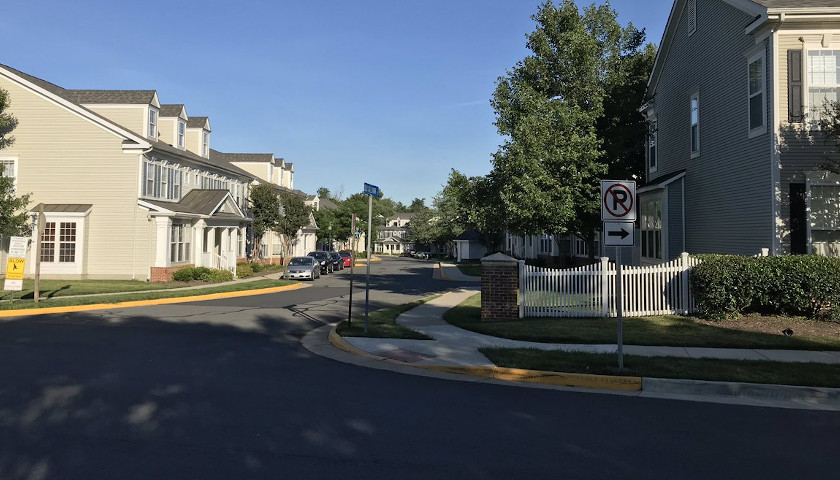by Luke Rosiak
A Maryland legislator wants to identify affluent suburban neighborhoods and target them for low-income, high-density housing.
House Del. Vaughn Stewart, a Democrat, wrote Jan. 3 that he will introduce “Homes for All” legislation that would “legalize the construction of modest homes in neighborhoods close to affluent schools, reliable transit, and good jobs.”
 “For too long, local governments have weaponized zoning codes to block people of color and the working class from high-opportunity neighborhoods, pushing them to the crumbling margins of cities and towns. We must act boldly to reverse decades of these exclusionary policies,” he wrote.
“For too long, local governments have weaponized zoning codes to block people of color and the working class from high-opportunity neighborhoods, pushing them to the crumbling margins of cities and towns. We must act boldly to reverse decades of these exclusionary policies,” he wrote.
The bill follows other efforts throughout the country to bring high-density housing to quiet neighborhoods of single-family homes, with advocates describing suburban neighborhoods with low crime rates and top-ranked schools as racially segregated.
The text of the legislation is not yet available and Stewart did not respond to a request for comment, but CityLab said the bill would bring more people into neighborhoods identified by a private tool called the “Opportunity Atlas,” which says it identifies neighborhoods where kids who grow up there tend to become high-earning adults.
The assumption appears to be that the neighborhood made the people wealthy, though in a previous article on the tool, CityLab staff writer Tanvi Misra said it could actually be factors specific to the people who happen to live there, such as “that the kids who grow up there are very likely to have a father figure.” Misra was writing about Springwells Village, a predominantly Spanish-speaking neighborhood in Detroit.
CityLab said Stewart’s Modest Home Choices Act would legalize duplexes, triplexes and quadplexes in “opportunity” neighborhoods that are currently single-family zoned.
#missingmiddle for days in Ashburn—these are 2-3 bedroom condos, disguised to look like a large house, parking in back, sidewalks, porches. Under $400k. And, of course, in a subdivision ~35mi from DC pic.twitter.com/2Xt4aIFaHa
— dan reed 🦀🏳️🌈🇬🇾👋🏾 (@justupthepike) June 23, 2019
Opportunity Atlas said it determines “which neighborhoods in America offer children the best chance to rise out of poverty” by “using anonymous data following 20 million Americans from childhood to their mid-30s.” That would mean the beneficial effects ascribed to the neighborhood actually refer to the neighborhood as it stood years ago.
Richard Vedder, an economist with the Independent Institute, said the logic was “bizarre” and ignorant of “human nature.”
“The ‘redlining’ argument had validity in 1945, but it has no validity today,” he said, adding that the move could exacerbate inequality by steering more people to areas that were already doing well, while leading to disinvestment in other areas.
Changing the character of “opportunity zones” could also lead to the residents who raise high-earning children leaving, he said.
The social engineering proposal is similar to efforts to bring back 1970s-era busing to schools based on the assumption that if kids in a particular school score highly on tests, then if low-performing students are moved into that school, the effect will be contagious.
Data in Maryland and Virginia do not support that theory, and a report commissioned by the public school system in Montgomery County, which Stewart represents, found that “African American and Hispanic [free or reduced-price meals] students who live in poverty but attend more affluent schools do not perform significantly better than their peers in schools with higher concentrations of poverty.”
In Maryland, an alliance of social justice activists and the real estate development industry back the school and “upzoning” initiatives.
“The billionaire developers can make deals where they collect money from the lower income classes,” Vedder said. “It’s the rich and poor versus the middle class.”
Del. Ibraheem Samirah pushed the idea in Virginia this month that suburbs are racially segregated and should become more like cities. The Democratic Virginia lawmaker introduced a bill to allow duplexes in every single-family neighborhood and said suburbs are “mostly white and wealthy” and needed to “share the burden.”
– – –
Luke Rosiak is a reporter for the Daily Caller News Foundation.
Photo “Maryland Neighborhood” by Dan Reed.




